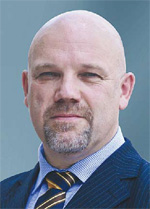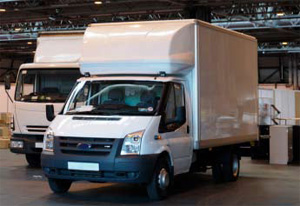Norway-headquartered Magnetic Emission Control AS (MEC AS) says it has the technology to optimise combustion processes and, thus, save fuel, money and the environment, which can have ramifications for transport refrigeration. Climate Control Middle East met up with the company’s CEO, Bjørn Skjervold, for a chat …
 Norway-headquartered Magnetic Emission Control AS (MEC AS) says it has the technology to optimise combustion processes and, thus, save fuel, money and the environment, which can have ramifications for transport refrigeration. Climate Control Middle East met up with the company’s CEO, Bjørn Skjervold, for a chat …
Norway-headquartered Magnetic Emission Control AS (MEC AS) says it has the technology to optimise combustion processes and, thus, save fuel, money and the environment, which can have ramifications for transport refrigeration. Climate Control Middle East met up with the company’s CEO, Bjørn Skjervold, for a chat …
How does your technology work?
The main focus is on combustion. Where oxygen is involved, we can give better combustion. Faster combustion increases torque in engine. With better torque, you can go to higher gear, which will reduce consumption.
What tests have you conducted?
In the last two years, we have been working hard to test and wait to have more documentation. We have been working in the US since late 2009. In Norway, we started tests on ship engines, but the early logging equipment was not accurate enough. Today, however, we have new logging machines and are able to say that we can realise good savings.
Our technology, when applied correctly, leads to increased fuel efficiency, by up to 20% and reduced emissions. This ultimately results in reduced carbon, soot and particle emissions.
These results came out of a series of ‘Engine-Dynamometer Tests’, conducted in cooperation with the Auburn University in the US. Another series of tests were conducted using the J1321 test, an industry standard developed by the Society of Automotive Engineers (SAE), the International Organization of Engineering Professionals) and the American Trucking Association (ATA). Both showed that MEC AS’s unique, proprietary technology optimises combustion processes and increases fuel efficiency. This, in turn, acts to reduce carbon, soot and particle emissions.
 The ATA test was designed by Bob Rosenthal more than 30 years ago, and it is the most used test. For the first time ever, magnet technology has had a positive result in this test.
The ATA test was designed by Bob Rosenthal more than 30 years ago, and it is the most used test. For the first time ever, magnet technology has had a positive result in this test.
What specific message would you have for transport refrigeration companies?
We can lower carbon emissions due to reduced fuel consumption. We can also reduce NOx emissions and particulate matter. All diesel vehicles have particle filters. Our technology will do away with filters. If filters fill up, you need to clean or replace them; so if you do not need filters, you don’t need to clean them. Also, better fuel efficiency means longer engine life.
Copyright © 2006-2025 - CPI Industry. All rights reserved.